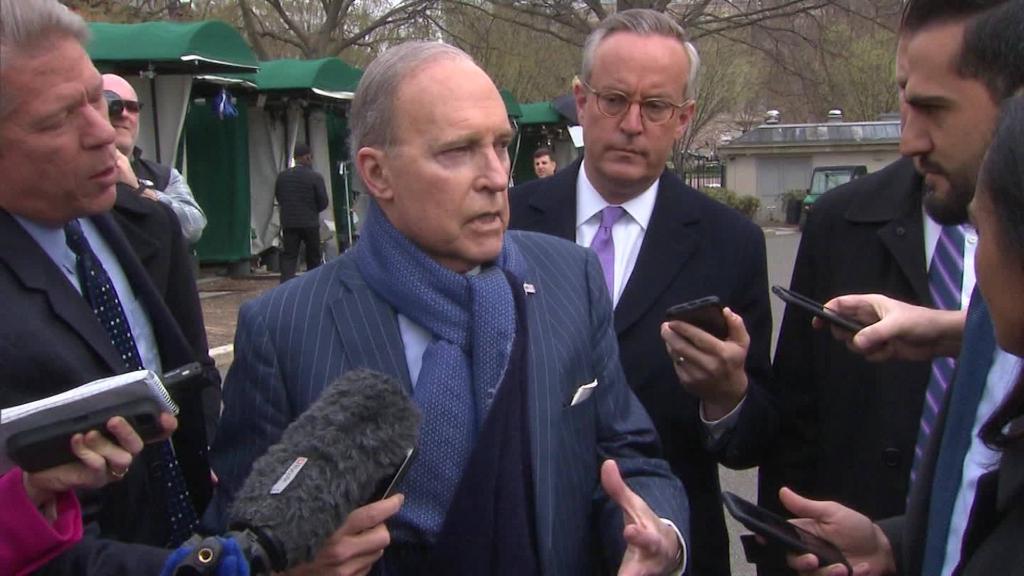
Chinese investment in the United States plummeted in 2017. And that was before a trade fight erupted between the two countries.
For years, Chinese entities have pumped a significant amount of money into the US, deepening ties between the world's two largest economies.
But such investment fell from $46.5 billion in 2016 to $29.7 billion in 2017, according to a report released Tuesday by the Rhodium Group and the National Committee on U.S.-China Relations. That's a drop of more than one third, though 2017 was still the second highest year on record.
The sharp decline set in well before President Donald Trump launched a series of aggressive trade actions against China, including slapping tariffs on steel and aluminum imports, and calling for up to $150 billion in additional tariffs on Chinese goods as punishment for intellectual property theft.
So what accounted for the dip?
China has tightened restrictions on outbound investment because it's worried that its biggest conglomerates could be overextending themselves.
"The Chinese, about a year and a half ago, started to impose capital controls, which stopped people from doing a lot of [US] acquisitions," said Stephen Orlins, president of the National Committee on U.S.-China Relations.
Related: China's big conglomerates are no longer buying up the world
In 2017, Beijing said it would limit overseas investments by Chinese companies in industries like real estate, hotels, entertainment and sports clubs.
There's also a tougher regulatory environment in the United States.
The Committee on Foreign Investment in the United States, or CFIUS, is an inter-agency panel chaired by the Treasury Department. It vets certain deals that could give a foreign investor control of a US business for national security risks.
That panel has been increasingly aggressive under Trump. Experts say CFIUS has been examining more deals, while heavily scrutinizing tie-ups that could give foreign companies access to sensitive technologies or personal data on Americans.
More than $8 billion in deals were abandoned in 2017 because the parties couldn't address concerns raised by CFIUS, according to estimates from the Rhodium Group and the National Committee on U.S.-China Relations.
Related: Under Trump, the US government gives many foreign deals a closer look
The 2018 outlook for Chinese investment in the US doesn't look much better.
"The commercial appetite of Chinese firms for US investment expansion is stronger than ever, but regulatory hurdles are unlikely to fade in Beijing and will almost surely increase in the US, casting uncertainty over the near-term outlook," the report said.
And the fact that China and the United States are now locked in an escalating fight over trade likely won't help.
In theory, the tariffs could encourage some foreign manufacturers to build facilities in the United States to avoid paying the extra duties.
But trade penalties often spook foreign companies, making the business environment seem risky.
"The tension makes the Chinese nervous about doing business in the United States," Orlins said.


